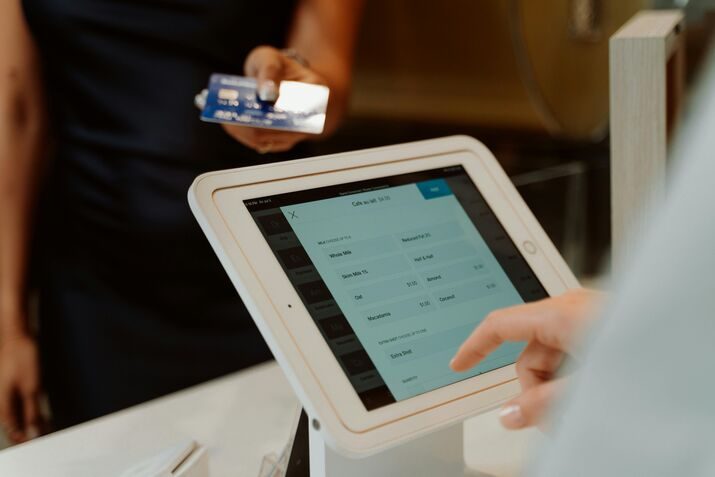Features Showdown: Salesforce Marketing Cloud vs. HubSpot

Salesforce Marketing Cloud and HubSpot are two of the most recognized marketing tools for campaign automation, customer engagement, and conversion optimization. However, they offer distinct features tailored to various marketing needs and different types of organizations. To choose the right platform, consider both platforms’ automation capabilities, data insights, integration flexibility, and how they align with your business objectives.
This article objectively compares Salesforce Marketing Cloud and HubSpot to help you make that decision.
Core Differences Between Salesforce Marketing Cloud and HubSpot.
Salesforce Marketing Cloud and HubSpot take different approaches to marketing automation.
Salesforce Marketing Cloud is an enterprise-grade solution primarily designed for organizations with complex customer journeys, advanced personalization needs, and large-scale marketing operations. It provides AI-driven insights, deep segmentation capabilities, and omnichannel marketing tools that integrate seamlessly with the broader Salesforce ecosystem.
HubSpot, on the other hand, is built for ease of use. It caters to small and midsize businesses looking for an all-in-one marketing solution with intuitive workflows, pre-built automation templates, and user-friendly reporting tools. While powerful, HubSpot lacks some of the deep customization and scalability of Salesforce Marketing Cloud.
Integrating both systems needs some level of specialized knowledge.
Marketing Automation: Customization vs. Simplicity
Salesforce Marketing Cloud offers robust automation capabilities through Journey Builder, which allows you to create highly personalized customer journeys across different channels—email, SMS, social media, and web. It uses AI-powered insights from Einstein AI to optimize messaging and timing, ensuring the right message reaches the right audience. Salesforce is suitable for your organization if you have multi-step workflows; it enables complex trigger-based automation, dynamic content personalization, and granular segmentation. However, the platform requires significant setup and expertise to unlock its full potential.
In contrast, HubSpot prioritizes simplicity. HubSpot’s Workflows tool makes automation easy with a visual drag-and-drop interface. Users can set up lead nurturing campaigns, abandoned cart emails, and basic customer journeys without technical expertise. However, compared to Salesforce, HubSpot’s automation is more limited in handling complex workflows.
Data and Reporting: Depth vs. Usability
Data-driven marketing requires comprehensive reporting and analytics. Salesforce Marketing Cloud provides enterprise-grade data analysis with AI-powered insights, predictive modeling, and multi-touch attribution. Marketers can use Salesforce tools like Datorama and Einstein Analytics to track engagement metrics across multiple channels, precisely segment audiences, and forecast campaign performance.
HubSpot’s reporting tools focus on accessibility. The platform offers custom dashboards, campaign performance tracking, and ROI measurement tools. Although it provides detailed insights, it doesn’t match Salesforce’s depth in predictive analytics, AI-driven recommendations, or advanced segmentation.
Integration Capabilities: Ecosystem vs. Simplicity
Integrations are crucial in elevating marketing efficiency, and both platforms offer strong connectivity but with different approaches.
Salesforce Marketing Cloud seamlessly integrates with Salesforce CRM, providing a unified view of customer interactions across sales, service, and marketing. It also connects with thousands of third-party tools via MuleSoft, making it powerful for businesses that rely on multiple platforms.
HubSpot offers native integrations with major CRMs, e-commerce platforms, and marketing tools, including its own HubSpot CRM. While HubSpot integrations are easier to set up, they may not provide the deep data synchronization and customization options that Salesforce offers.
Which Platform Is Right for Your Business?
The choice between Salesforce Marketing Cloud and HubSpot depends on your business size, marketing needs, and available resources.
- Salesforce is best for enterprises that require AI-driven automation, deep data analytics, multi-channel engagement, and complex customer journey mapping. It’s ideal for businesses looking for enterprise-level customization and integration with Salesforce CRM.
- HubSpot is better suited for small and mid-sized businesses that need an easy-to-use, all-in-one marketing platform. It simplifies automation and reporting while offering strong, native integrations.
Make the Right Choice Between Salesforce Marketing Cloud and HubSpot
Both marketing solutions are effective in different situations. To make the right decision, compare them and choose the tool that aligns with your business objectives and needs. If you have complex marketing workflows, you should go for Salesforce’s advanced features; if you seek an intuitive all-in-one platform, consider HubSpot.
Need help making an informed decision? Contact us to discuss how we can help.
##MarketingCloud #CRM #CustomerEngagement #DigitalMarketing #Hubspot #MarketingAutomation #MarketingTech #Salesforce





